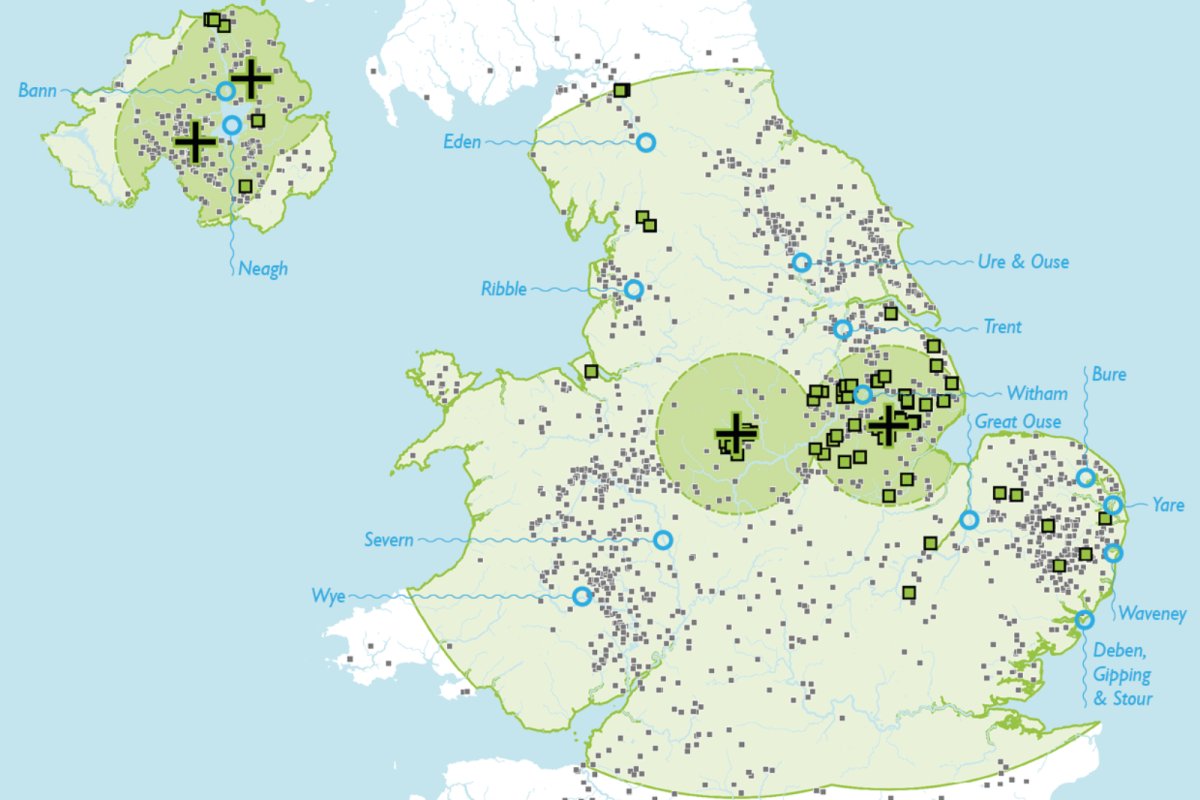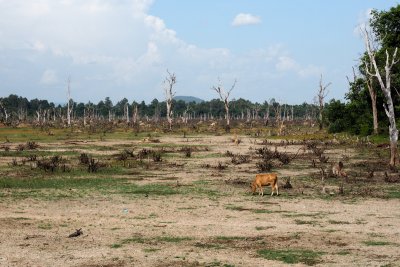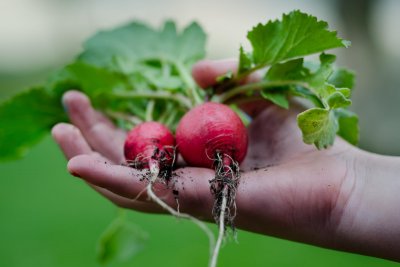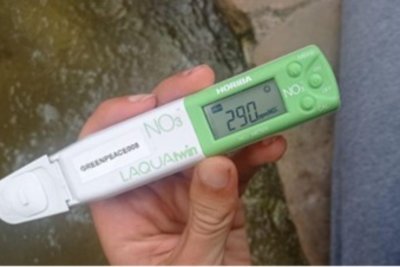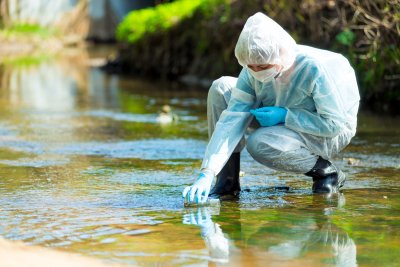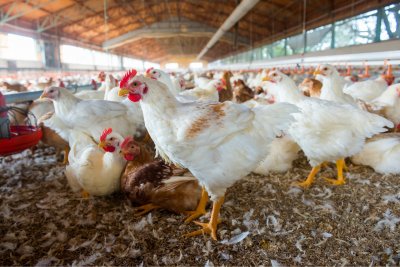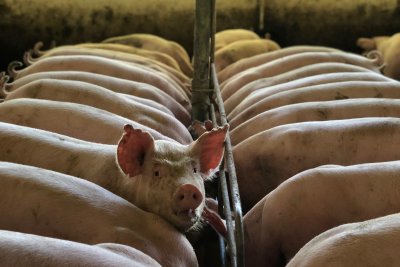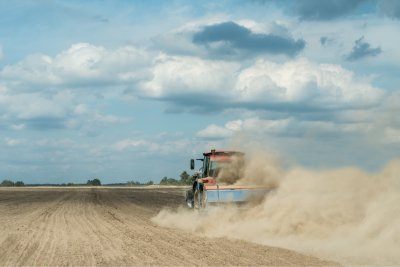Just ten large agribusinesses are responsible for producing almost double the excrement that is produced by the 10 largest cities in the UK, new analysis from Sustain and Friends of the Earth has found.
The companies, which include 2Sisters (including Hook2Sisters), Arla, Avara Foods, Cranswick, and Moy Park, have over 144 million animals in production at any one time. They are responsible for up to 55,262 tonnes of animal excreta per day.
Analysis of these agribusinesses’ operational areas shows that they are clustered in polluted river catchments including the Wye, Trent, Severn, Lough Neagh and the Broadland Rivers. All supply to major UK retailers, and none were found to have policies to prevent pollution leeching into waterbodies.
According to Compassion in World Farming, the number of intensive livestock ‘megafarms’ has increased by 20% since 2016. Campaigners are calling for an immediate halt to the expansion of factory farming in polluted river catchments.
The findings highlight a lack of regulation on companies that own intensive livestock operations, and a risk to the recovery of the UK’s polluted waterways and climate targets.
Ruth Westcott, campaign manager at Sustain said:
“One of the agribusinesses we analysed creates more faecal waste than the human population of Wales and Scotland combined. It is absolutely shocking how little regulation or scrutiny they face. They can pass their waste on – untreated – to farmers or landowners and make it their problem, washing their hands of responsibility. We found that none have policies to ensure the waste they export doesn’t end up in polluted catchments and ultimately rivers. Enough is enough. These companies must be held to account.”
Clare Oxborrow, corporate justice campaigner at Friends of the Earth, said:
“The unchecked expansion of factory farming in the UK is responsible for producing horrifying quantities of toxic waste that’s seeping into our waterways and proving catastrophic for wildlife and nature.
“Waterways across the country are being choked by toxins from slurry and manure leaching into streams, rivers and lakes. Lough Neagh, in Northern Ireland, hit the headlines last summer when shocking images showed the UK’s largest freshwater lake had turned green due to blue-green algae caused by pollution from nearby intensive livestock farms.
“There is an urgent need for the government to step in and force the vast agribusinesses responsible for this toxic waste – and the supermarkets they supply – to take action to protect our waterways and the wider environment. That’s why we’re calling for a new UK business, human rights and environment act to hold companies to account for environmental harms in their supply chains.”
Virendra Sharma, Member of Parliament for Ealing, Southall said:
“It’s time that we acknowledged the alarming reality of river pollution caused by intensive agriculture in England. The routine release of untreated waste into our waterways cannot continue unchecked. I wholeheartedly agree with Sustain’s recommendation for the Government to treat big ag businesses with the same level of scrutiny as sewage companies and stop the expansion of intensive livestock units in the most affected areas. The time is now for the Government to take decisive action and protect our rivers for generations to come.”
Recommendations:
Campaigners are calling for a halt on new intensive livestock units in river catchments where nutrient loads are exceeded, or rivers are in unfavourable condition. They also want to see a series of just and equitable options available – supported by Government – for farmers that want to transition to more sustainable farming that benefits food security including growing more vegetables, pulses, and legumes. Better powers and funding are needed for regulatory agencies, as well as reform of planning and permitting regulations which are allowing new units to be built in polluted river catchments. The authors highlight that Local Authorities already have significant powers to introduce planning policy to better scrutinise intensive livestock units.
Friends of the Earth are calling for a new Business, Human Rights and Environment Act to require UK companies to prevent environmental harm and human rights abuses in their supply chains, and a new UK law for a human right to a clean, healthy and sustainable environment.
| Number of animals in production at any one time | Excreta produced | ||||||||
|---|---|---|---|---|---|---|---|---|---|
| Company | Meat chickens | Egg chickens | Turkey | Pigs | Dairy cows | Sows | Tonnes /day | Tonnes /hour | |
| 2 Sisters | 45,000,000 | 4,050 | 169 | ||||||
| Arla | 460,000 | 21,390 | 891 | ||||||
| Avara Foods | 33,000,000 | 2,970 | 124 | ||||||
| Banham | 7,428,000 | 669 | 28 | ||||||
| Bernard Matthews | 2,692,307 | 377 | 16 | ||||||
| Cranswick | 9,642,857 | 1,500,000 | 62,000 | 9,693 | 404 | ||||
| Karro | 1,300,000 | 28,000 | 7,879 | 328 | |||||
| Moy Park | 35,000,000 | 3,150 | 131 | ||||||
| Noble Foods | 7,200,000 | 672 | 28 | ||||||
| Pilgrim's Pride | 750,000 | 4,413 | 184 | ||||||
| Total | 130,070,857 | 7,200,000 | 2,692,307 | 3,550,000 | 460,000 | 90,000 | 55,262 | 2,303 | |
The UK’s 10 largest intensive livestock agribusinesses, showing the average number of animals in production in their supply chain at any one time, and estimated volumes of waste produced. Credit: Sustain.
NEW REPORT:
Stink or Swim
The ten factory farm corporations producing more toxic excrement than the UK's ten largest cities.
Food for the Planet: Food for the Planet is helping local authorities, businesses and organisations take simple actions to tackle the climate and nature emergency through food.
